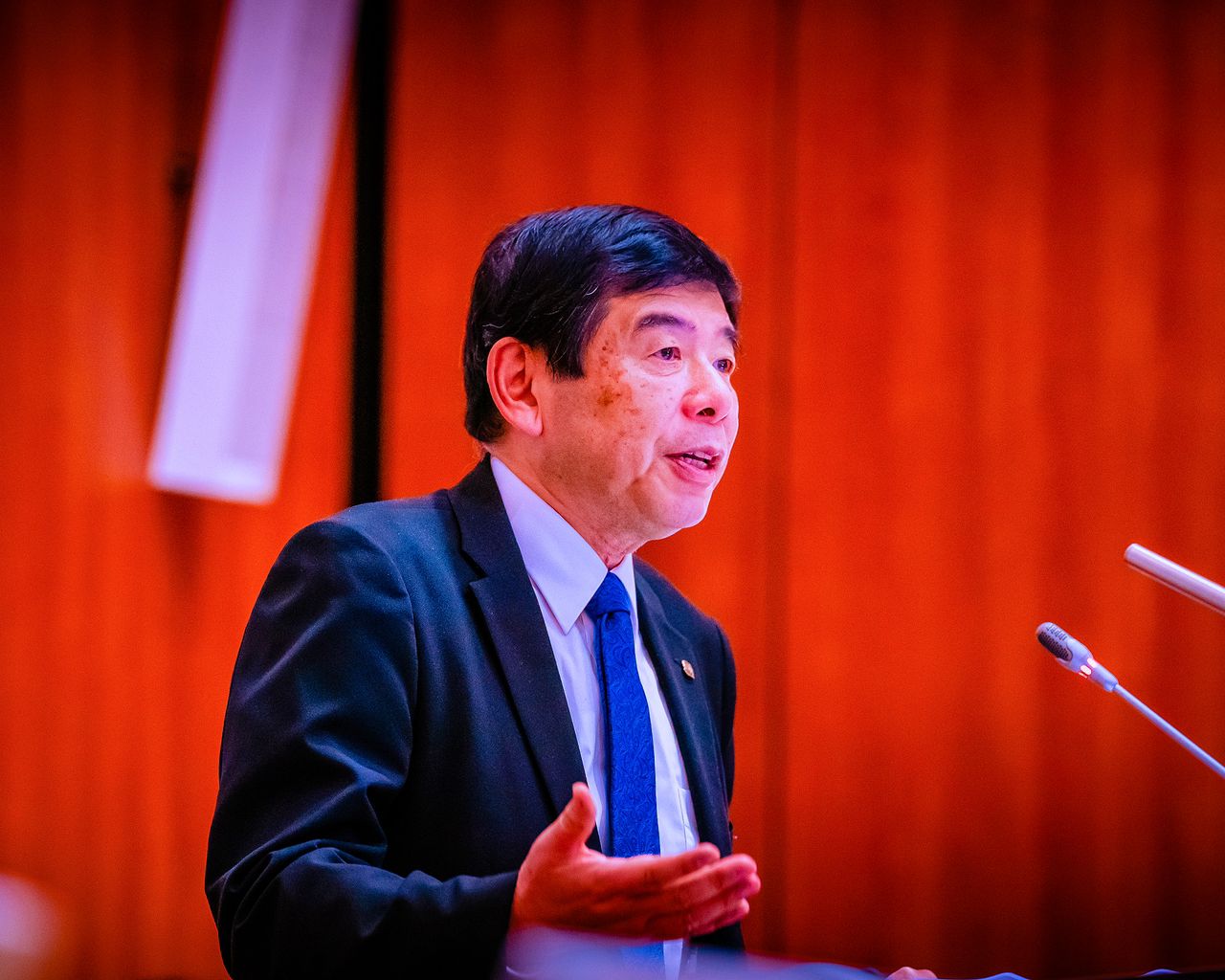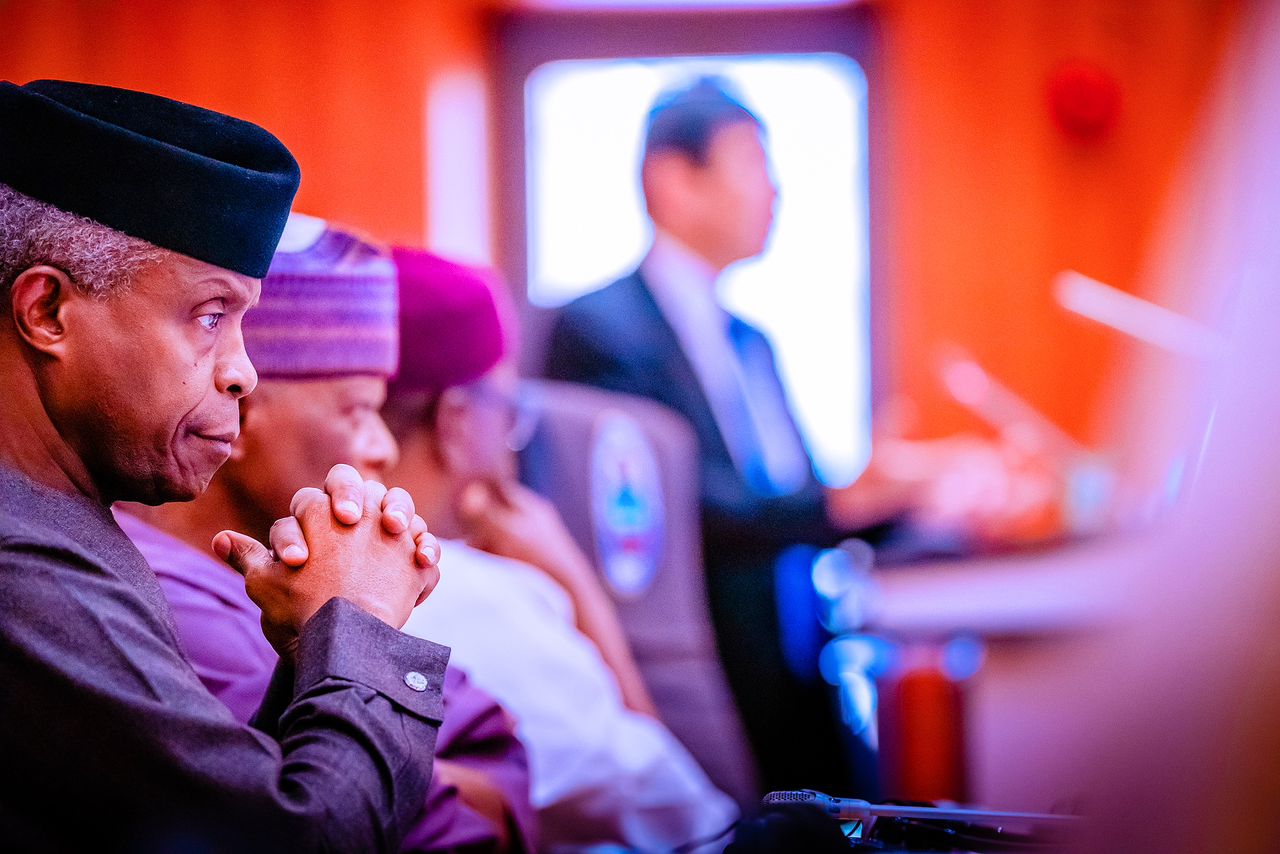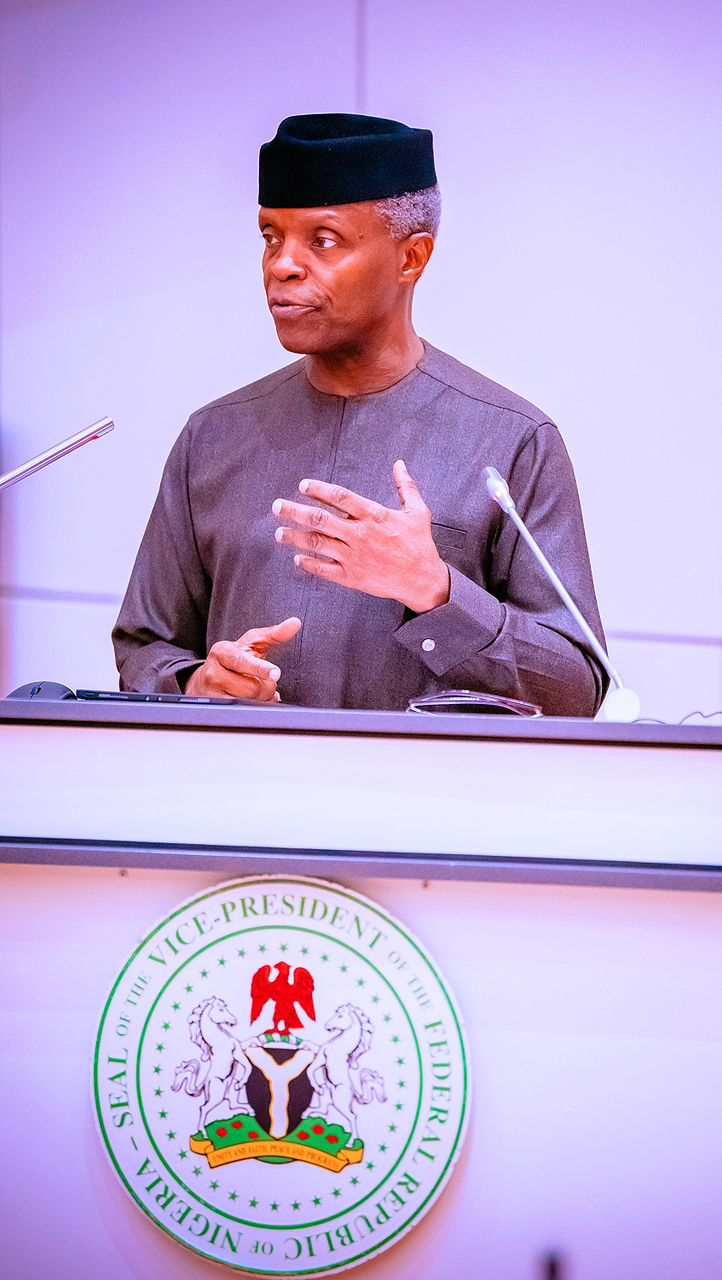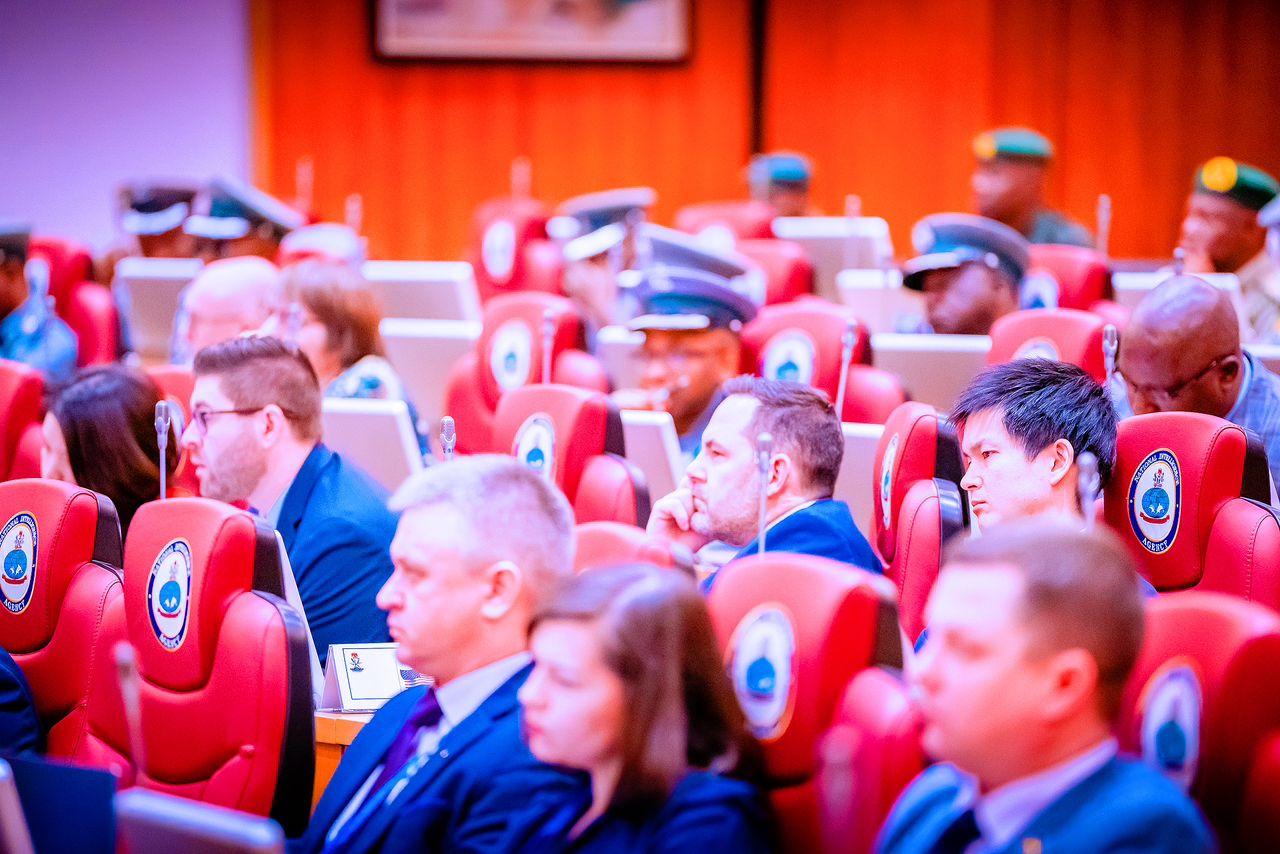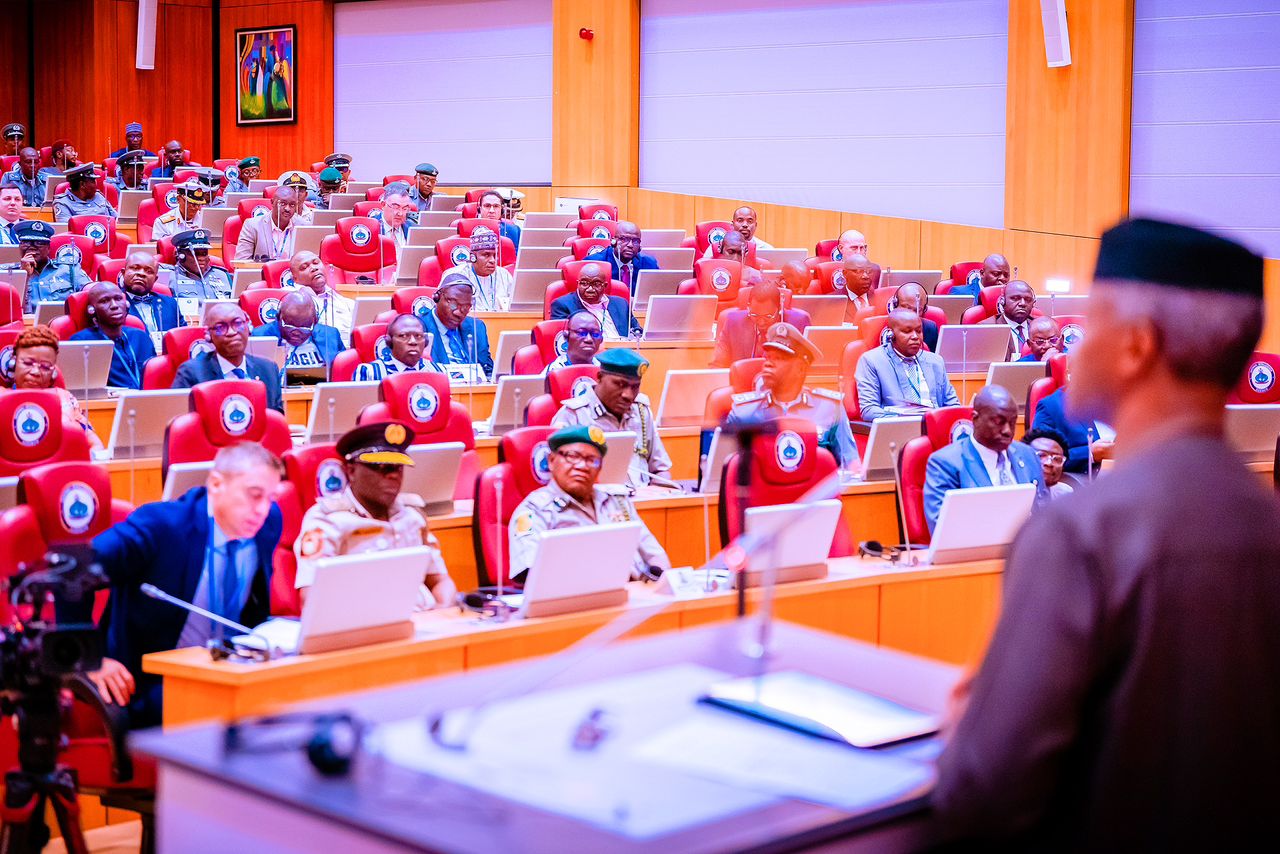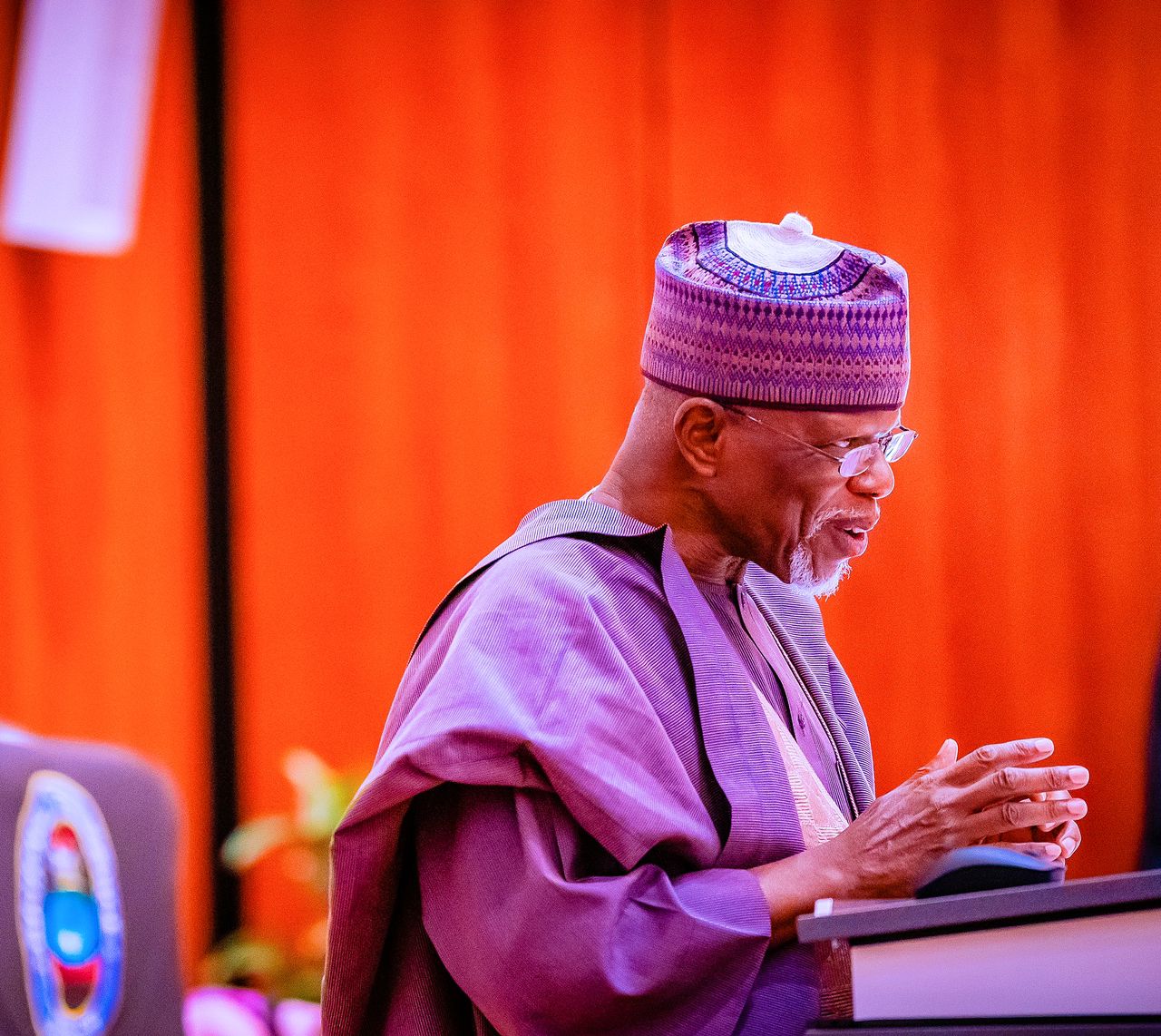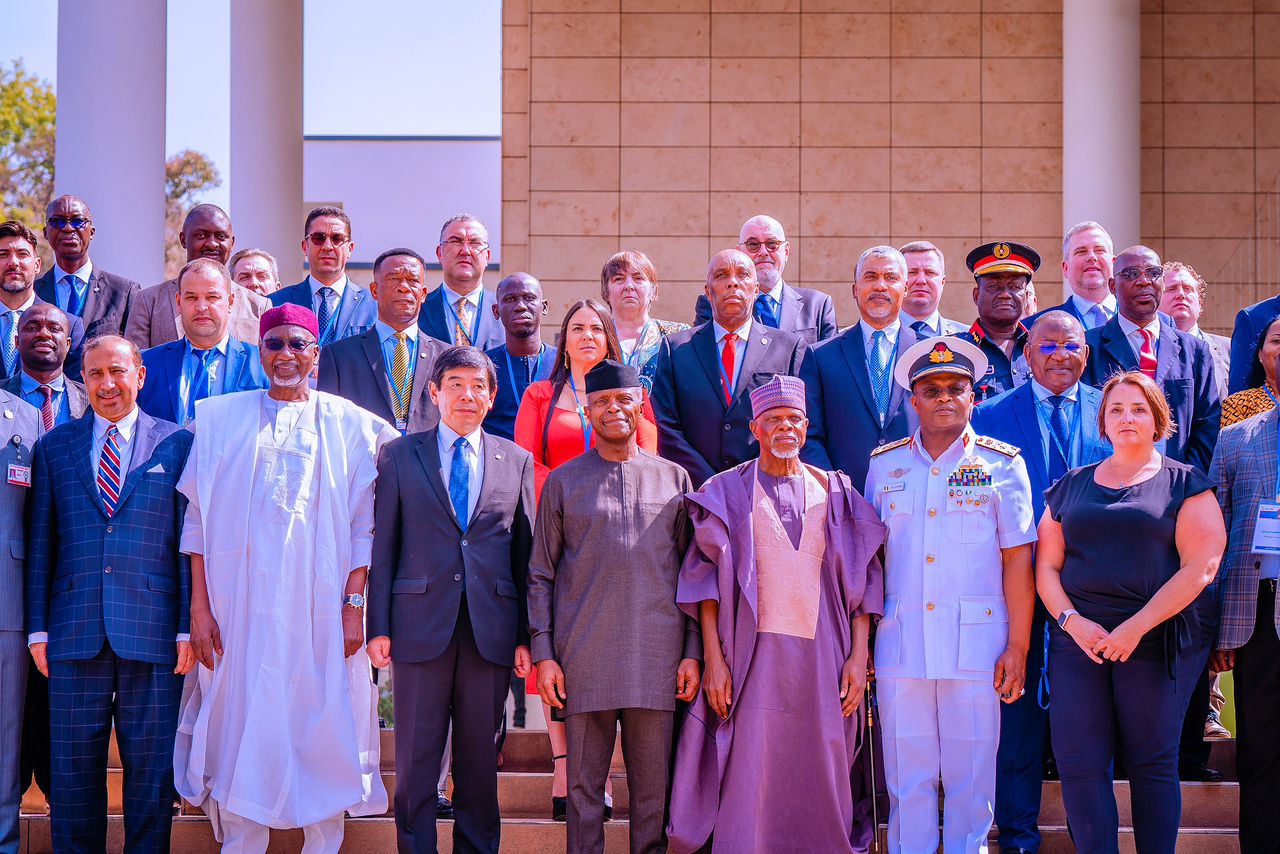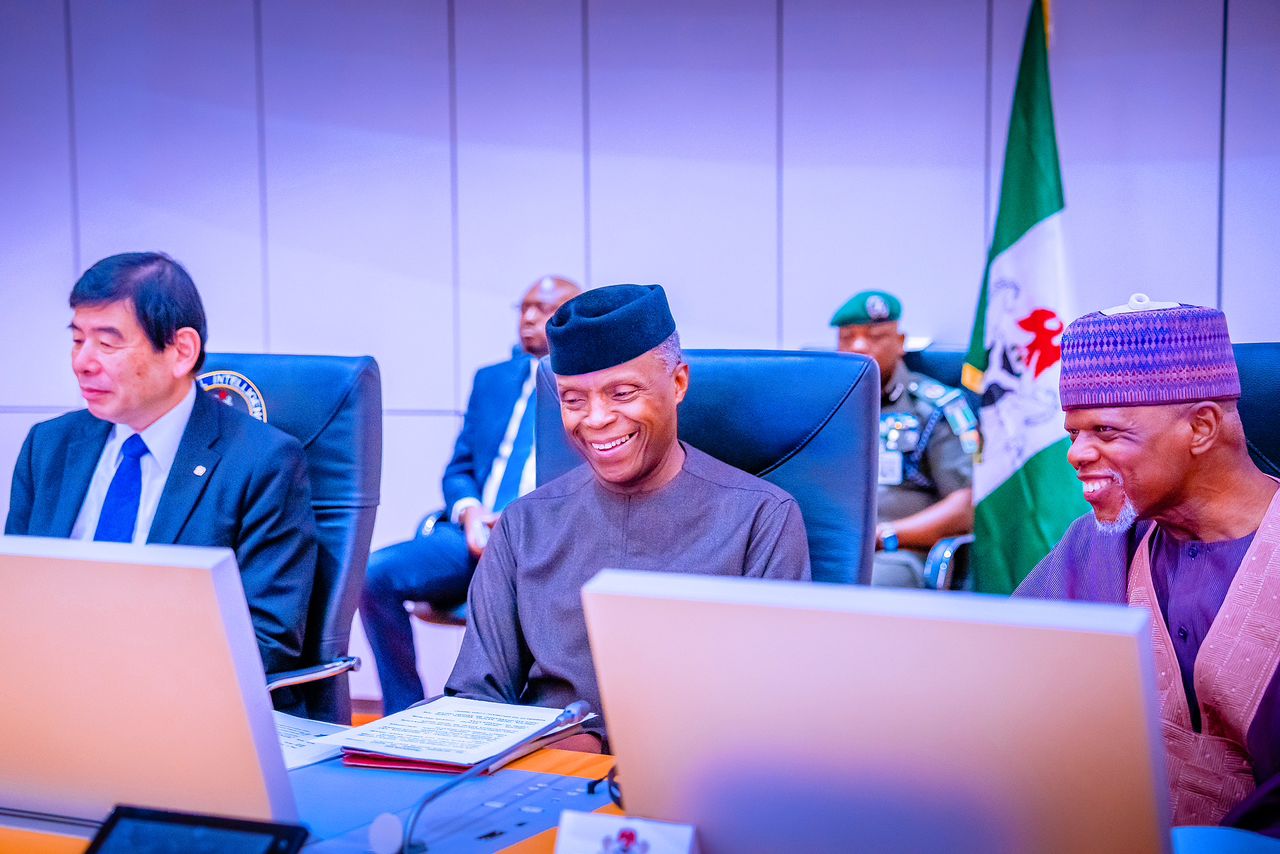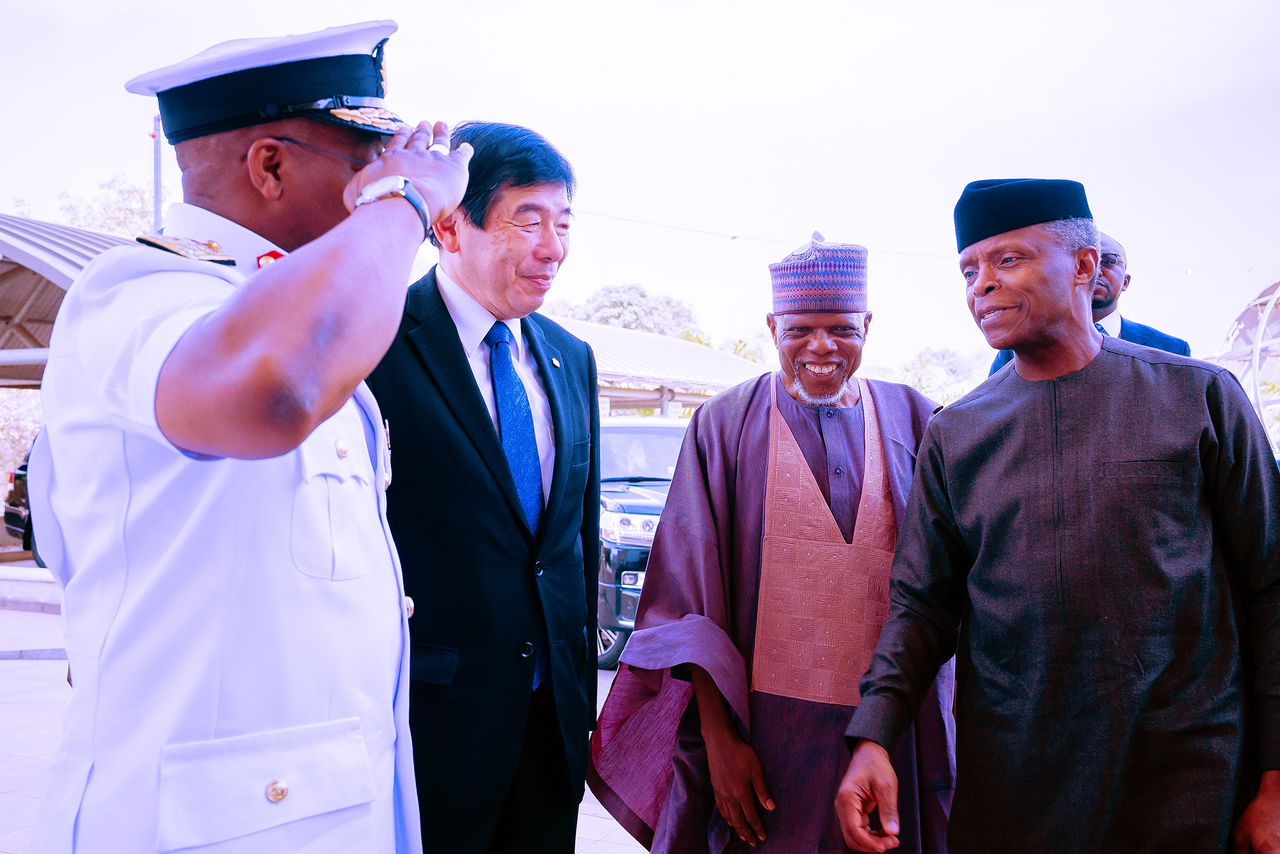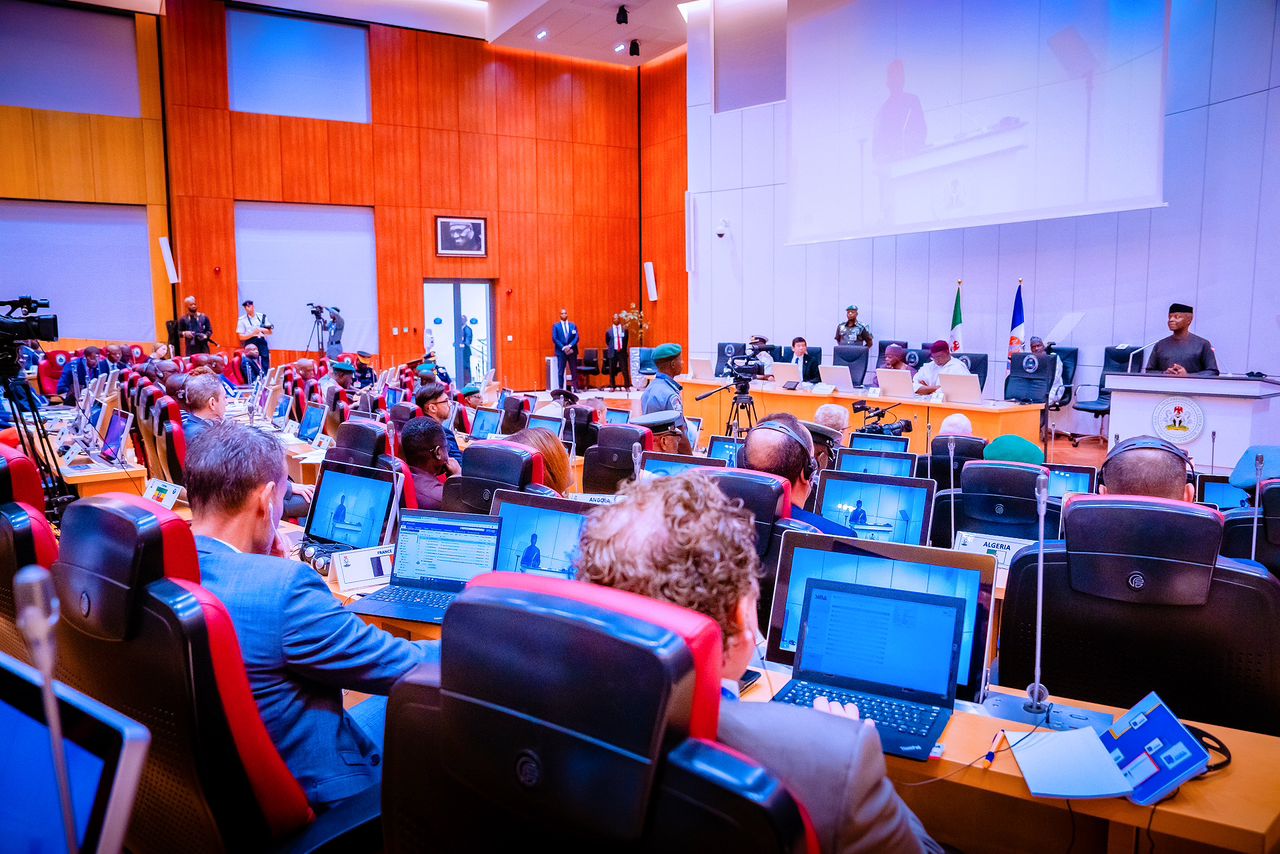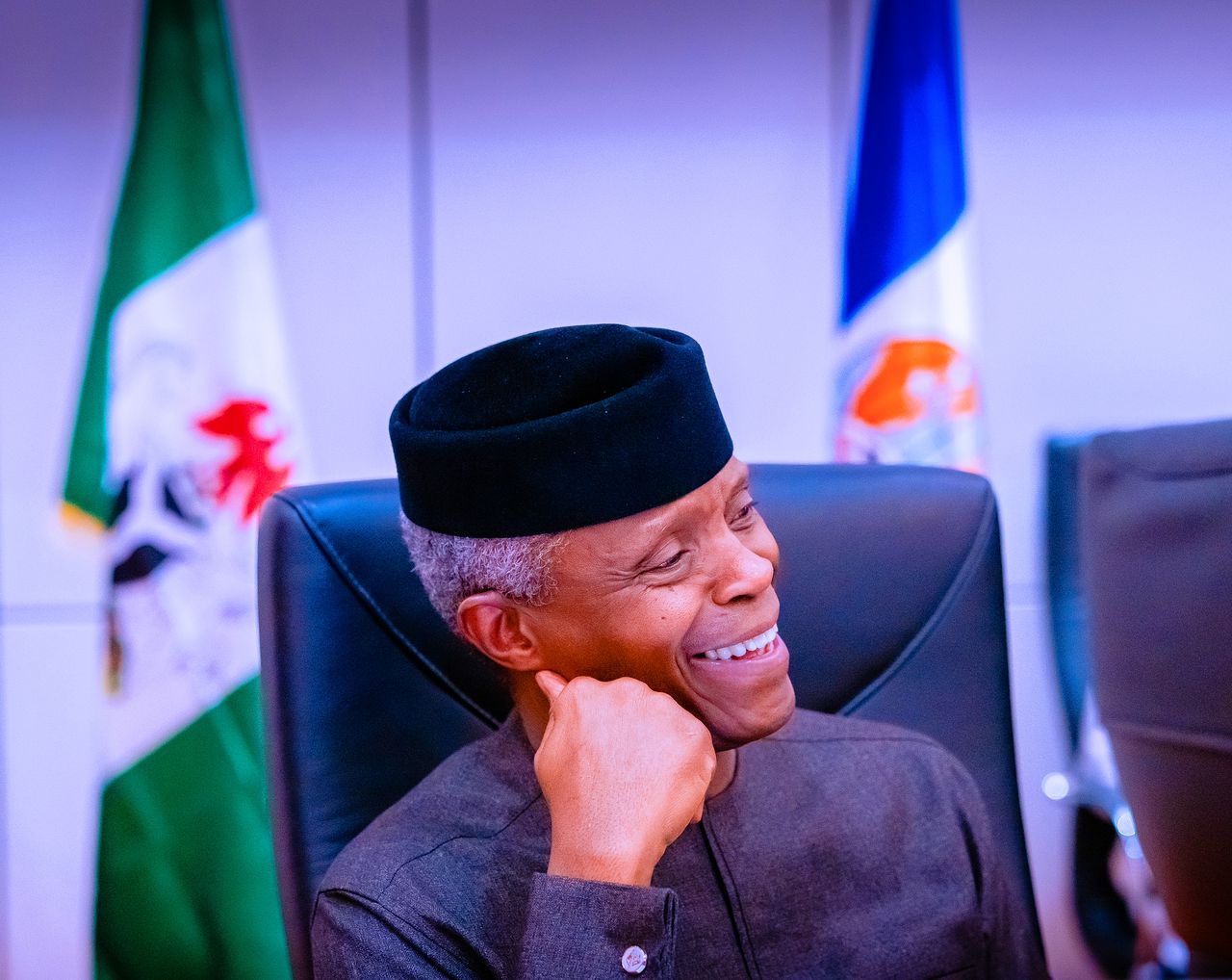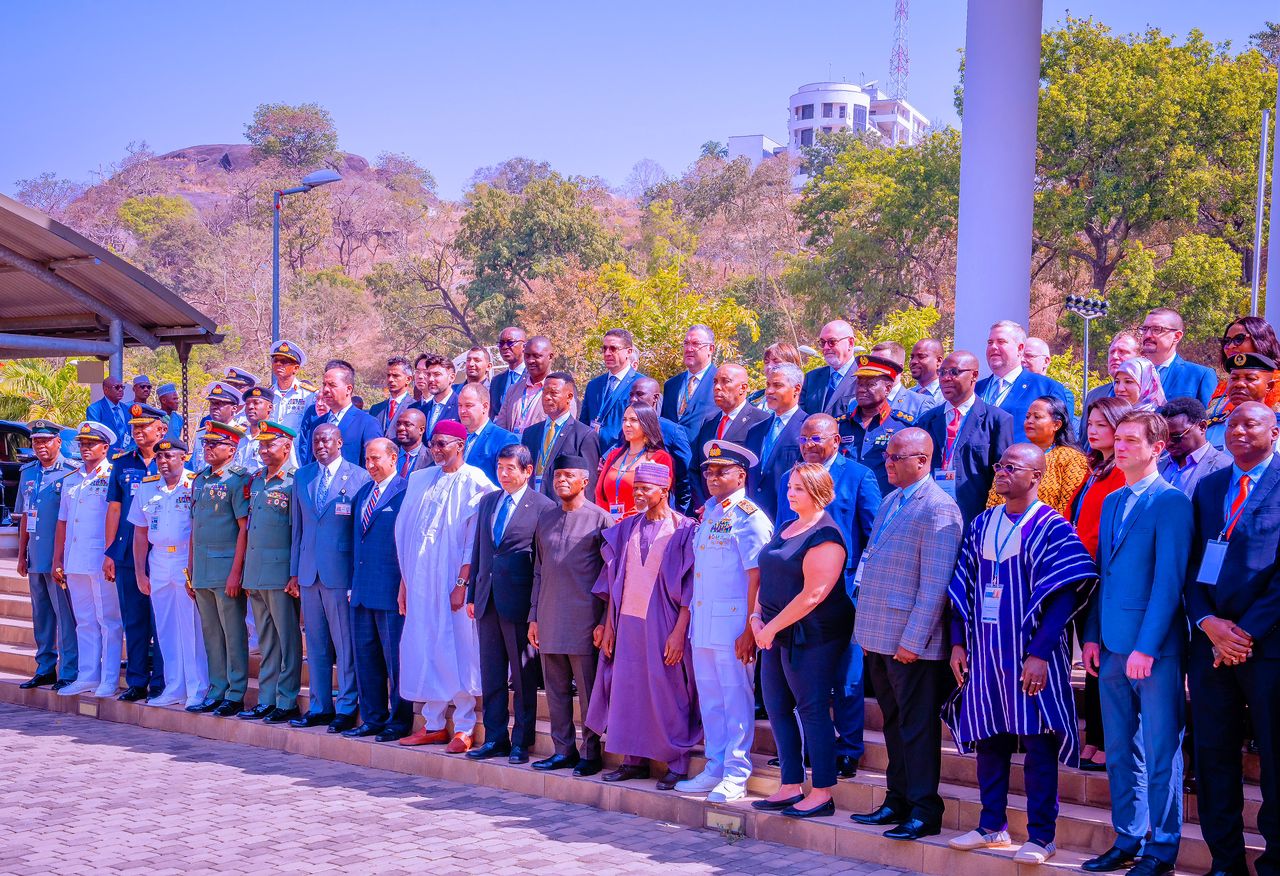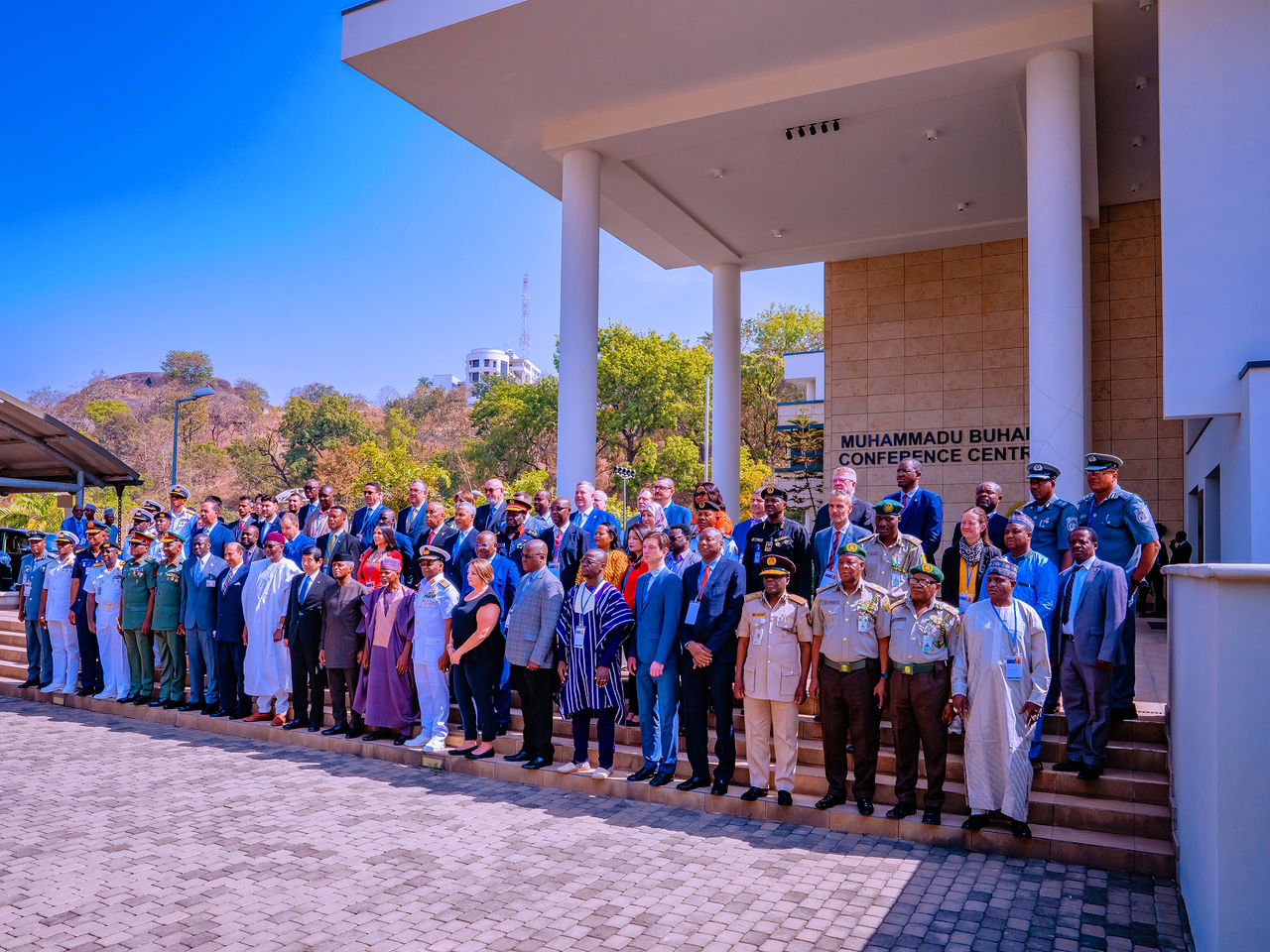Global Conference On Fragile Borders By World Customs Organisation
SPEECH DELIVERED BY HIS EXCELLENCY, PROF. YEMI OSINBAJO, SAN, GCON, VICE PRESIDENT OF THE FEDERAL REPUBLIC OF NIGERIA AT THE INAUGURAL GLOBAL CONFERENCE ON FRAGILE BORDERS ORGANISED BY THE WORLD CUSTOMS ORGANISATION, WCO, AT THE NIA IN ABUJA ON THE 31ST OF JANUARY, 2023
PROTOCOLS
Thank you, Dr. Kunio Mikuriya, the Secretary General of the World Customs Organisation, WCO for the privilege extended to Nigeria to host this inaugural Global Conference on Fragile Borders. We warmly welcome you, your delegation, member nations of the WCO present, and all our visiting dignitaries to Abuja.
I bring you the warm greetings of President Muhammadu Buhari and his best wishes for the success of this global conference.
First, I think that the World Customs Organisation deserves our commendation for the tremendous effort it has exerted over the years to achieve its vision of bringing diverse national customs administrations the world over, together for the purpose of a safer and more prosperous world under the rubric of the mantra – “Borders Divide, Customs Connects.”
Today the WCO proudly boasts of 184 members and 6 regions including our own Nigeria Customs Service and the West and Central Africa Region. Secondly, we must also acknowledge the creative ways that the WCO and its members have over the years coped with the challenges of fostering trade facilitation, revenue collection, protection of society and organizational development in today’s increasingly complex and dynamic environment.
This is why it is for me a great pleasure to join you today as you proactively prompt the process of putting heads and minds together, sharing ideas, deliberating and conceiving a plan to address one of those critical issues, presented by the theme of the conference: Enabling Customs in Fragile and Conflict-Affected Situations.
Even before the global pandemic in 2020, fragile and conflict-affected states (FCS), faced extraordinary headwinds: institutional and social fragility, limited provision of rule of law and basic services to the population, climatic mishaps, an underdeveloped private sector and violent conflict that spilled across borderlines. For states classified as fragile and conflict-affected situations, the poignant mix of social, economic, political, governance, security and climatic factors had already created a perfect storm before the COVID-19 pandemic added an even more devastating dimension to tip things over.
At the same time as some of the advanced economies provided trillions of dollars in spending programs and central bank asset purchases, many of the fragile and conflict-affected countries were confronted with high inflation, unemployment, food crisis, and the high cost of adapting to climate challenges that they did not create.
With the United Nations estimating that there are 89 million displaced persons globally, and the attendant flow of people and illegitimate trade across national border lines in conflict areas, it is clear that fragile borders in the context of customs administration demand serious attention.
According to the International Monetary Fund, approximately one billion people in the world are directly affected by situations of fragility and conflict. These situations often spill over national borders and can quickly become a hotbed and pipeline for international terrorism, illegal mining, illegal trade of weapons and drugs, human trafficking and smuggling.
Border fragility is a major issue that affects the stability of many African states. The U.N. states that there are more than 1,000 fragile borders in Africa, with roughly 600 between African countries. Customs management is of course a crucial component of managing fragile borders.
We in the West and Central African region know a thing or two about fragile borders. The Lake Chad Basin straddles four countries in the West and Central African Region – Nigeria, Niger, Cameroun and Chad. The history and story of the Lake Chad Basin region is one of opportunity spanning centuries. It was a region rich in water, fishery and arable land that provided livelihood to more than 30 million people only over a decade ago.
The Boko Haram crisis that started in the North East of Nigeria truncated the region’s development course and exposed millions to extreme adversity. Statistics from the UN indicate that approximately 1,020 schools are non-functional across the region due to violent attacks that deprive thousands of children access to education. 300,000 children are severely malnourished. Over 11 million people require humanitarian assistance; 4.1 million people struggle with food insecurity – and 2.8 million people have been forced to flee their homes.
Now there have been efforts to address the situation and strengthen the resilience of the Lake Chad Basin Systems which requires significant investments. It is evident that fragile borders not only aggravate conflict, but also rob the States of crucial income that could address some of the social issues that contribute to conflict.
The WCO has sought to innovatively position the role of customs in border areas affected by armed violence and in post-conflict situations. An important part of that effort is the research programme commissioned by the WCO in 2016 titled Fragile Borders, which is considered a watershed in defining the nature and scope of the problem and robustly recommending solutions.
The study we are informed of “broadened the notion of security to its economic and fiscal dimensions, beyond technical responses to terrorist risks.”
The programme also, if I may paraphrase the WCO’s published summary, provided a broader view on the role of Customs in the relationship between security and border economy, cross-border trade and taxation practices, competition between states and non-state armed groups in fragile areas and the restoration of administration in post-conflict situations.”
I think it is quite obvious from published snippets ahead of its formal presentation today that the report will set the agenda for discussion and action in the years to come.
First: it is obvious from the sheer number of fragile borders and the convergence of fiscal and security issues at such borders, that governments must actively redefine the role of their customs services to be properly integrated into the security architecture. The days of the customs service dedicated only to fiscal matters at the borders are long gone.
Second, it is now imperative that national governments, where there are fragile borders or in post-conflict situations must invest intentionally in infrastructure, and capacity building for their customs service personnel.
Third, fragile and conflict-affected states (FCS), especially in developing countries must be assisted in acquiring relevant technology such as drones, sensors and other remote technologies to better track goods and enforce security.
Fourth, creating more robust platforms for intelligence and best practice sharing, and data exchange systems must be enhanced.
The endeavour before the WCO and its members requires ambition, focus and cooperation. I am optimistic that you will not only talk but walk the talk to help fragile and conflict-affected countries on the journey to prosperity, peace and stability. As you embark on this journey, the Nigerian Government expresses its fullest commitment to ensure that any plans or recommendations from this Conference will be implemented.
Thank you.


